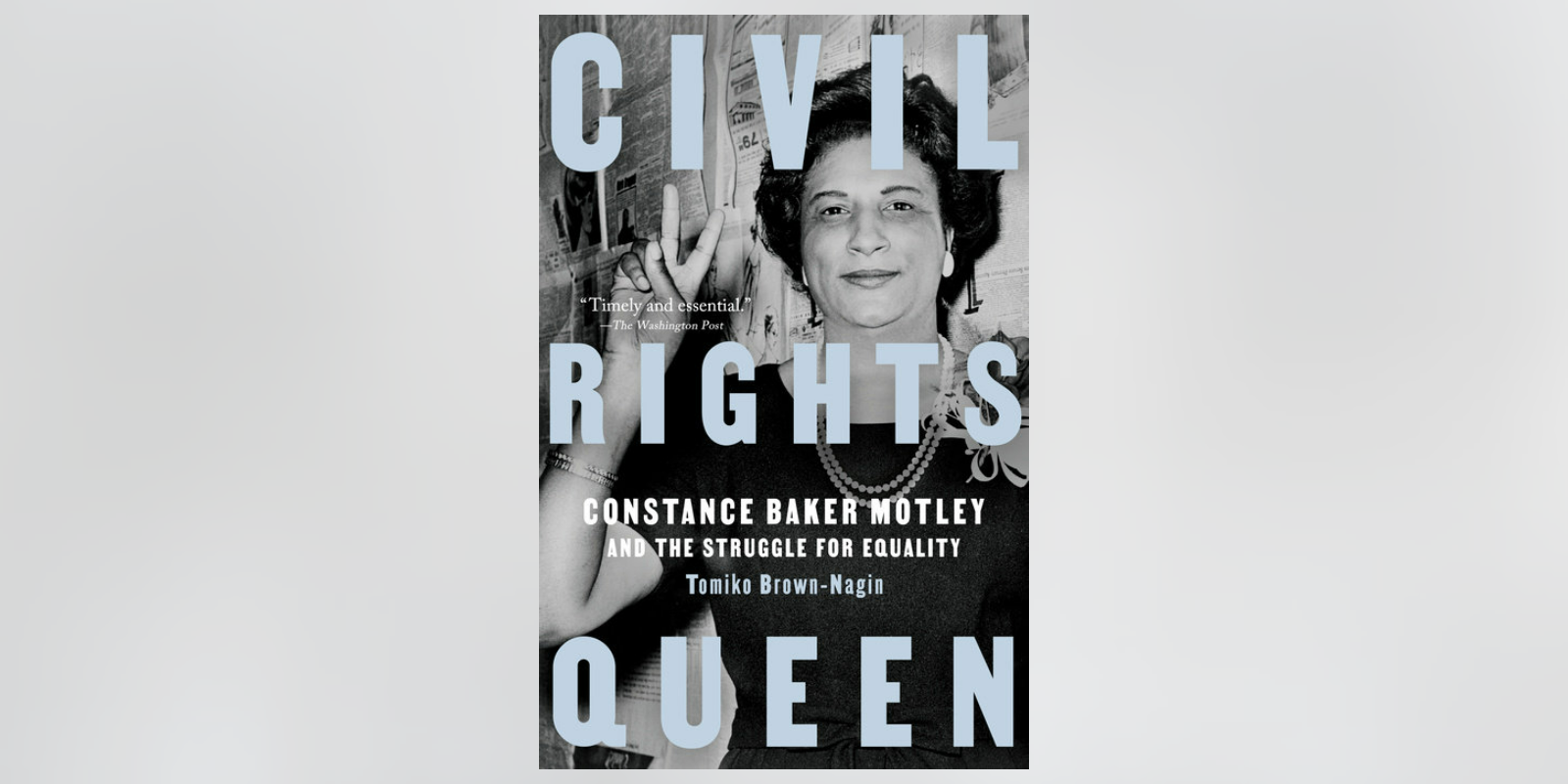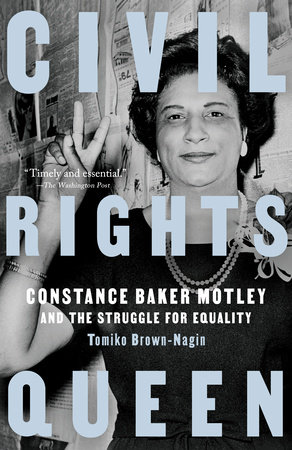Dear Educators:
Constance Baker Motley and the turbulent but hopeful era in which she lived and worked captivates students. Over email, at book fairs, and in university classrooms nationwide, students have approached me to explain how Civil Rights Queen, my book about Motley’s life and times, stimulated, provoked, and moved them.
Motley’s admirers come from all walks of life. High schoolers, law and graduate students are touched by Civil Rights Queen. Motley’s meteoric rise from the bottom to the top of society, her fierce commitment to social change, and the setbacks she encountered and surmounted grab their attention. Motley inspires students. They relate to her ambition to shake up a broken world and her life’s work, using the law as a tool of change, taps into the zeitgeist. During these tumultuous times she shows them how a single individual, working alongside peers, all dedicated to a social cause, can alleviate suffering by attacking wrongs from the outside of seats of power or righting them from the inside of halls of power.
These students, no less than many well-read adults, are surprised that Motley’s isn’t a household name. When I began writing Civil Rights Queen over a decade ago, so was I. It was a kind of historical malpractice, I thought, to omit her from the pantheon of the country’s great movers and shakers. I set out to show why the pathbreaking civil rights lawyer, politician, and judge belongs in the same class as her mentor, Thurgood Marshall, and her client, Martin Luther King, Jr. Like them, she helped create the world we inhabit today; although the nation is imperfect and the struggle for equality remains unfinished, state-mandated racial segregation has been banished, gender roles are more fluid, and women commonly enter the workplace.
Civil Rights Queen shows readers how the world changed. Readers see epochal episodes in the civil rights movement through the eyes of Motley and pivotal figures such as Marshall, King, James Meredith, and Medgar Evers. They learn that she helped litigate Brown v. Board of Education, the most important constitutional case in twentieth-century American history, while raising a young son. They visit college campuses and see her bring down segregation at Ole Miss, the University of Florida law school, and UGA, despite violent white resistance. They see her represent protesters during the Birmingham civil disobedience campaign, desegregate schools in Atlanta, and save the life of a criminal defendant condemned to death. Well before the advent of Ruth Bader Ginsburg, they learn, Motley won nine of the 10 landmark cases that she argued at the U.S. Supreme Court. It is no wonder that Ginsburg called Constance Baker Motley her “human rights hero.”
Motley embodied and brought about social change, and it is my privilege and honor to introduce her to new generations of Americans and future leaders in the enduring battle to make ours a more perfect union.
Tomiko Brown-Nagin

© Rose Lincoln
TOMIKO BROWN-NAGIN is Dean of Harvard’s Radcliffe Institute for Advanced Study, the Daniel P.S. Paul Professor of Constitutional Law at Harvard Law School, and Professor of History at Harvard University’s Faculty of Arts and Sciences. In 2019, she was appointed chair of the Presidential Committee on Harvard and the Legacy of Slavery. She is a member of the American Academy of Arts and Sciences, of the American Philosophical Society, and of the American Law Institute, and a distinguished lecturer for the Organization of American Historians. Her previous book, Courage to Dissent won the Bancroft Prize in 2011. She frequently appears as a commentator in media. She lives in Boston with her family.






